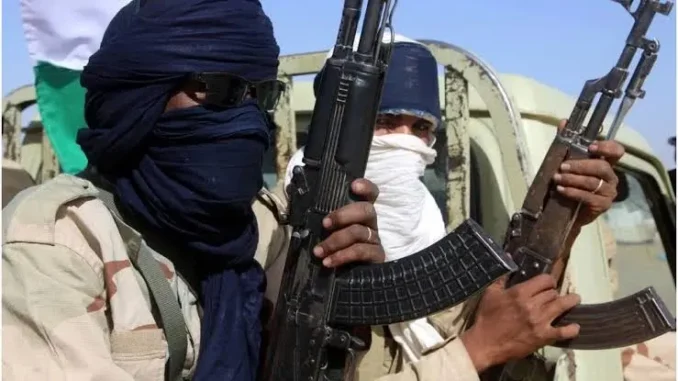
Residents in Sokoto State have raised alarm over the growing presence of the Lakurawa sect, claiming that the group is making life unbearable for locals.
The military, on Thursday, confirmed the sect’s presence in various communities across Sokoto and Kebbi states, acknowledging that their activities are compounding the security challenges in the North West region.
Malam Muhammadu Bauni, a resident of Sokoto, shared his concerns with BBC Hausa, noting that while the sect members present themselves as protectors against banditry, their actions impose significant hardships on the community.
The presence of the Lakurawa sect has added a new layer of complexity to the security landscape, which has already been strained by banditry and other forms of violence.
He said, “They claim they are protecting us against bandits and at the same time imposing certain religious laws on our communities. Recently, they beat some of our youths for shaving their beards. The same treatment is meted to those with hairstyles or who listen to music.
“We are all Muslims; we are not against Shari’ah law, but there can’t be a government within a government.
“And the way they are imposing the law is unacceptable because there is no Shari’ah law that stipulates severe punishment for shaving beards or listening to music.
“The worst part of it is that they have been indoctrinating the locals, but they are not killing or kidnapping our people for ransom.
“They are only after government agents. In the last six days, they came and abducted a health personnel working in our primary health centre and nothing has been heard about him since then. Most of the high profile attacks on security operatives in those areas are being carried out by them.
“If they see a new face in our community they would take him to their camp and interrogate him; and if they find out that he is a government official, that is the end of him. If he is not, they would bring him back. It is the same thing for our locals – any person who stays away for some days, they will pick him up upon return and interrogate him before discharging him. This is how we are living.”
He said the matter had been reported to the appropriate authorities, but nothing had been done about it.
“There was a time soldiers raided our community and killed two of them, but they haven’t come back since then. And we can’t fight them because they are in large numbers and have sophisticated weapons,” he added.
Another local told the BBC Hausa Service that the group is heavily armed and often communicates with locals in multiple languages, including Hausa, Fulani, Tuareg, Kanuri, Tuba and English.
He added that after their preaching sessions, they translate their messages into these languages to ensure that all members of the local communities understand their doctrines.
“They arrive in large numbers, often coming on 10 to 15 motorcycles, and leave some members behind as they move to other towns,” he added.
The group also collects religious taxes, known as zakat. According to the source, if individuals refuse to pay, the group confiscates their animals, only returning them after payment.
Another resident confirmed to the BBC that out of the five local government areas where they abound in Sokoto State, the group has significant influence in two of them.
“In Gudu Local Government, for example, they have presence everywhere, even outside the local government headquarters. There is no place where they do not move about freely,” he said.